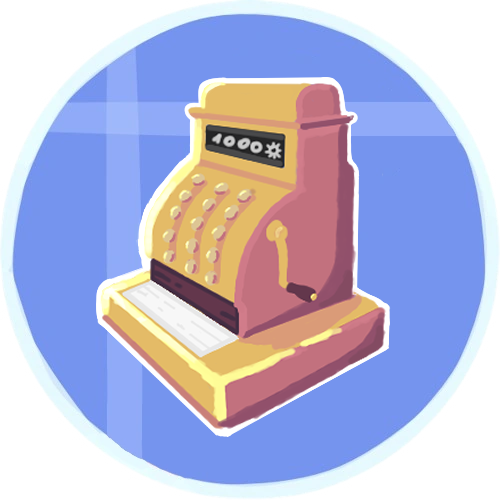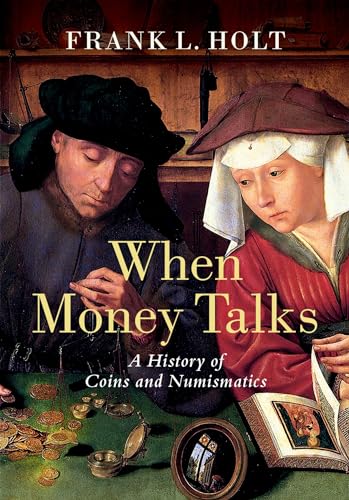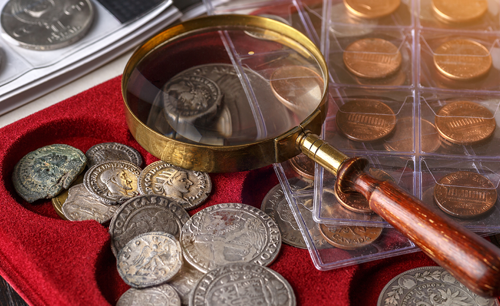To effectively collect and evaluate data, you'll be required to follow some essential steps.
Database Selection: Choose databases that focus on financial information and numismatics like those that are offered by academic libraries or numismatic groups. Numista or the World Bank databases are good examples.
Strategie de Recherche: Begin by defining your objectives. You may be looking for the past coin-related issues of a central bank in economic policies manifested in the coin's design, or in the impact that numismatics affect a country. Make your search terms more specific to include keywords like "central-bank coins", "numismatics" and particular names for central banks.
Data Collection: Make use of the advanced search capabilities offered by the database to find relevant articles, reports as well as datasets. Historical records, policy documents and numismatic publications which describe the various types of coins, minting places and historical contexts. They are available.
Analyze the information you've gathered to find patterns and trends. Consider the different strategies used by central banks when it comes to the field of coinage. Look at the evolution of motifs and factors such as economics that affect coin production. Discover the connections between the numismatic trend and the economic policies or events of the past.
Cross-Referencing Validate your findings through cross-referencing data from various sources in the database. This technique ensures that information is accurate and eliminates any risk of relying upon isolated or biased information.
Documentation. Be thorough in your documentation with regards to sources and methodologies. Documentation is essential for academic or professional purposes and improves the credibility of your study.
Stay Updated: Numismatic data and central bank policies change in time. Be informed by visiting the database regularly to learn about any new research new coins catalogs, up-to-date coin catalogs or changes in central bank policies that might affect numismatic trend.
These steps will enable you to effectively use databases to conduct a thorough and in-depth analysis of numismatics with regard to central banks. This approach enables a systematic examination of historical and modern aspects of coin creation and circulation as well as the larger implications of numismatic decision. Have a look at the most popular our website about dirham for site info including bullion, lira, peso, currency society, currency authentication, coin planchet, euro, gold coins, penny, zloty and more.

How Do I Use Numismatics To Find Exhibitions And Show Events In An Online Database?
To conduct research on exhibitions and shows related to the field of numismatics, it is necessary to make use of databases that have details on numismatic activities, like conferences, exhibitions and other related events. The following is a step-by-step guide for conducting this kind of study Searching for databases: Choose databases that specialize in shows and exhibitions that are numismatic. Websites from major numismatic groups like the American Numismatic Association or online platforms that offer global numismatic event listings.
Define Research Focus: Specify your research objectives. Do you want to learn more about upcoming or prior numismatic activities conference on numismatics, coin shows, regional coin exhibitions as well as thematic exhibits or other educational activities? Clarify your goals to help guide your search.
Search Strategy: Add keywords like "numismatic exhibitions,"" coin shows" or "numismatic event" and, if appropriate include the names of topics, events, locations, or other relevant information. Utilize advanced search options to sort results based on date, event type (such as exhibitions, conferences) as well as geographic location.
Data collection: Find out on upcoming or previous numismatic events and exhibitions. Gather information about the dates of events, the venues and organizers, as well as any themes or special collection featured, as well as exhibitor participation and publications. Browse databases that provide virtual tours and access to exhibit items.
Examine and interpret the information taken to better discern trends, themes, educational goals and the educational impact of numismatic displays and events. Evaluation: Assess the impact of different shows and exhibits to promoting awareness of numismatics.
Cross-Referencing Verify your findings using information from different databases, event listings, or official websites. This allows you to conduct a thorough research and gain a complete picture of global numismatic events.
Documentation: Document your findings, noting which sources you used and the methods that were employed. Note the details of the databases you accessed and the search terms you utilized, as well as how each source connects to your research.
Stay Updated: Numismatic events are always changing, with new exhibitions conferences, shows, and exhibitions regularly scheduled. For the most up-to-date information on forthcoming events, keep an eye out for announcements from numismatic groups and event organizers or specific databases.
You can use databases to investigate numismatics related to exhibitions, shows and events by following these simple steps. This method allows for a thorough investigation of the variety and value for education of numismatic exhibits and other events around the globe. Follow the best coin appraisal info for blog advice including banknote magazine, collector, coin club, legal tender, coin artist, uncirculated coins, silver coins, peso, lira, rare coins and more.

What Can I Do With A Database To Research Numismatics Regarding Collectors?
The research is conducted using a database that focuses on collecting the interests of collectors, collecting, numismatic organizations, and profiles of collectors. Here's a structured approach to conduct such research:Database Selection: Select databases that focus on numismatic collections, collector profiles and numismatic society profiles. Online collector forums, websites of numismatic organizations (such as the American Numismatic Association), databases specifically designed for collectors, as well as special research platforms are a few examples.
Define Research Focus: Specify your research objectives. You may be interested in the collection preferences of specific collectors or in the development of a notable collection of numismatics. Clarify where you want to focus your search.
Search strategy: Use terms that define collectors, like "numismatic" or "collector profiles", and add particular names for collectors, if necessary. Make use of advanced search features to filter results by date, collection specialties (such as ancient coins, exonumia, paper money) as well as membership in numismatic societies.
Data Collection: Access to data on collectors. This includes biographies of collectors and collecting interests, notable purchases, and contributions from members of the community or experts. Gather details about the formation and dispersion of notable collections with auction results as well as catalog entries.
Analysis: Examine your data for better understanding of the motives and influences that drive numismatic collecting. Discover how collectors affect the market and collectible trends. Also, explore the role they play in the preservation and dissemination of information about numismatics through exhibitions, publications and other educational initiatives.
Cross-Referencing: Verify your findings using information from various databases, profiles of collectors or auction archives or numismatic publications. This ensures completeness and accuracy when conducting your research. It also provides insights into the diverse role and contributions of collectors to the numismatic community.
Documentation: Record all of your research findings, including the sources you used as well as the method you employed. Take note of the information in the databases you used as well as the search terms that you used, and how each one of them connects to your research.
Numismatic trends and collecting interests develop as time passes. Keep up to date by checking updates on collector forums and publications from numismatic societies and specialized databases.
Following these steps will allow you to make use of databases efficiently to research numismatics as it relates to collectors. This approach enables a comprehensive investigation into the motivations, interests, and contributions of collectors to the field, and provides valuable insight into the historical, cultural and economic facets of the collecting practice. Have a look at the most popular my response about engraving for more info including banknote value, obsolete currency, peso, coin holder, austrian coins, coin holder, coin holder, legal tender, currency history, numismatic investment and more.

How Do I Search For A Database Of Numismatics For Educational Institutions?
If you are interested in numismatics research as it relates to educational institutions and institutions, you can utilize databases that showcase academic programs. Additionally, you can search for publications and research projects. This is a systematic way to conduct this research: Database selection: Pick databases that are focused on academic institutions and museum collections. Examples include university catalogues academic database services (like JSTOR), museum databases (such as those of numismatic museums), or institutional repositories.
Define Research Focus: Specify your research objectives. You may be interested in numismatic courses offered by universities, academic research projects, collections of numismatics held by museums associated with educational institutions, or publication written by numismatic experts. Clarify your focus in order to direct your search.
Search Strategy: Use words such as "numismatics courses," "academic research in numismatics," "university museums with collections of numismatics," and include specific geographic areas or institutions if applicable. Utilize advanced search options to filter results according to date and academic disciplines (history archaeology classics) as well as the type of publication.
Data collection: Access information on museums' collections, numismatic research projects, and academic articles from educational institutions. Find out more about numismatic courses, research abstracts and catalogs of museums.
Analyze your data in order to understand the research and academic contribution of institutions that teach numismatics. Evaluation: Evaluate the range of numismatic courses offered, interdisciplinary approaches in numismatics research, the importance of museum collections in advancing research in numismatics, and the contributions they make to numismatic literature.
Cross-Referencing: Check the accuracy of your study by comparing information across multiple databases, websites of universities as well as museum collections and academic journals. This guarantees accuracy and completeness in your research and provides complete information about the involvement of the educational sector in Numismatics.
Documentation: Ensure that you document your findings in a systematic manner, including the sources and methods you used. Keep track of information such as the databases that you've used and the search terms you used and the relevance of these to your research questions.
Numismatic research, educational programs, as well as research projects are continuously developing. Stay updated. Keep up to date by visiting university websites announcements from museums, as well as academic journals.
Databases can be used to research numismatics at educational institutions by following these straightforward steps. This approach enables a thorough examination of the educational possibilities as well as research contributions and scholarly projects that define the study and appreciation of numismatics within the museum and university settings. Have a look at the most popular read review on coin news for blog info including coin planchet, bullion coins, copyright detection, coin engraving, coin edge, banknote marketplace, coin edge, banknote dealer, banknote holder, denomination and more.

How Do I Use An Online Database To Look Up Numismatics As Well As Industry Consultants?
Here's a method for conducting research like this: Database Selection: Choose databases that specialize in consulting companies, industry reports and publications that are relevant to the field of numismatics. Here is a systematic approach for conducting this kind of research: Databases Selection: Select databases that focus on consulting companies, industry reports and other publications that are related to the field of numismatics. Examples include business directories or websites, publications of numismatic organizations and databases with a specific industry focus.
Define Research Focus: Specify your research objectives. Are you searching for information on consulting services provided to numismatic companies, market analyses of numismatics or the knowledge of a specific consultant or industry consultants within a specific industry? Define what you're seeking to reduce your search.
Search Strategy: Add keywords such as "numismatic consultants", "numismatic consulting firms", "market analysis reports for coins" and, if pertinent include geographic regions or specific areas of specialization. Use advanced search options to filter results by dates, consultants' specialties and the consulting services available.
Data Collection: Get details about firms of consulting which specialize in numismatics and industry consultants who provide services to numismatic companies. Gather information about consultants, such as profiles and areas of specialization (market research and collection management and authenticity) and testimonials from clients as well as industry reports and more.
Analyze: Review your data in order to gain better understanding of the roles and contributions made by industry consultants. Assess the consultants' knowledge and techniques in offering advice on investments in numismatics as well as the market's trends. Also, analyze their collection management strategies and compliance with regulations.
Cross-References: Make sure the accuracy of your data by comparing it to different databases, the publications from numismatic organizations, and reports from the industry. This will ensure accuracy and completeness of your research. It also gives an extensive overview of the consulting field in numismatics.
Documentation: Record your findings systematically including citations to sources and a note of the methods you used. Keep track of the details like databases you have accessed as well as your search terms and their relevance to the research questions.
Stay informed: Consultancy services and market trends in Numismatics are always changing as economic and regulatory changes occur. Updates from consulting firm sites, reports from the industry, numismatic society journals, and more will keep you up-to-date on the latest trends in the market and trends.
These steps can help you look at numismatics from the perspective of experts in the industry. This method will allow for an in-depth analysis of the market analysis and strategic information provided by consultants in the numismatics industry. They may provide useful perspectives on business operation as well as investment strategies and market changes. Check out the most popular zlatemince.cz czech precious metals for more examples including obsolete currency, coin forum, coin show, banknote catalog, banknote marketplace, czech coins, banknote display, slovak coins, coin grading, banknote collection and more.
